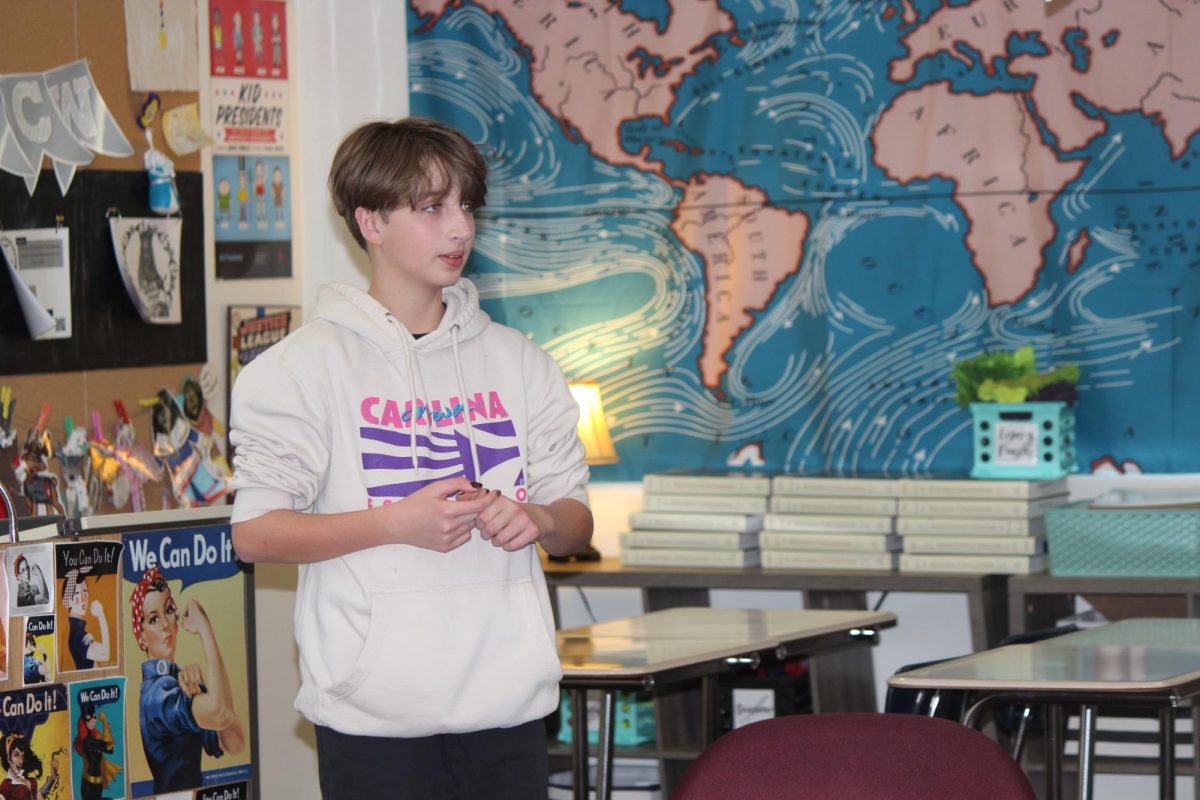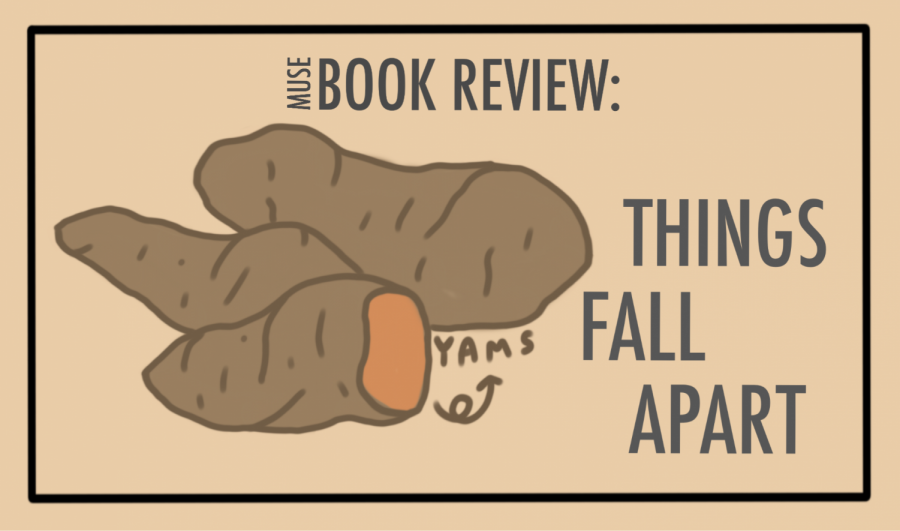Things Fall Apart by Chinua Achebe primarily follows the story of Okonkwo, set in the Nigerian Ibo villages. The first half of the novel establishes the setting and characters thoroughly, delving into the various characteristics of Ibo culture through a slice-of-life sort of pacing. The latter half then explores the turmoil and trauma that Okonkwo experiences, both as an individual and in his community, as a result of evangelizing European colonizers.
From the very start of the book, I was immediately hooked as Achebe sets up the complex character of Okonkwo by the second page. Complex characters are my jam, so with Okonkwo’s compelling backstory (relating to his father) right from the start, I knew I was in for a ride. (Also, somewhat unrelated, but the part about Okonkwo’s father’s friend asking Okonkwo’s father to pay back the debt—but first speaking in circles with proverbs—was so funny.)
Furthermore, I like how Achebe really focuses on the concept of masculinity, which probably comprises the core of Okonkwo’s internal dilemmas, throughout the book. I suppose the more modern term that could be applied here is toxic masculinity, as we often see how Okonkwo makes irrational choices because of his unwillingness to acknowledge any weakness whatsoever, which he identifies with feminity. It’s incredibly interesting to read this concept of toxic masculinity explored from the point-of-view of a man, as written by a male author, which certainly adds another layer of understanding and complexity. Achebe acknowledges that Okonkwo’s focus on masculinity is his hamartia while still providing the reasoning and context for why Okonkwo acts as such. Readers can thus empathize with Okonkwo’s actions while still disagreeing with many of them.
Yet Achebe doesn’t simply weave a complex and balanced perspective with regards to Okonkwo’s individual development; he does so throughout most, if not all, aspects of the novel. Even when writing about the arrival of the British missionaries looking to colonize the Ibo villages, Achebe doesn’t write it as a straightforward issue. He makes it clear that the proselytizing Europeans are mostly unwilling to assimilate into Ibo culture whatsoever, and unwilling to even attempt to understand, let alone empathize with, the Ibo. In fact, Achebe writes about a neighboring Ibo village that was entirely slaughtered by Europeans simply due to a misunderstanding. He writes about Okonkwo and his fellow clansmen being beat and whipped by the British, and their clan being cheated out of cowries. However, Achebe also includes the character of Mr. Brown, a British missionary who sought to understand traditional Ibo customs and religion, and who didn’t force Christianity on the Nigerians. He writes that the Christians would save the twins who were left out to die according to Ibo religion. It’s clear that Achebe isn’t trying to force a perspective; he simply writes realistically, which makes the book much more meaningful. (In fact, according to the foreword of the copy I had, Achebe’s entire novel is quite faithful to how history actually happened.)
The writing, moreover, is beautiful. Achebe’s deliberate choice to write the novel in English while incorporating many Ibo elements results in a sort of lyrical, poetic prose reminiscent of verbal storytelling rarely seen in English books. The language itself contributes to the highly immersive atmosphere, often referencing Ibo words or Ibo proverbs (I love the proverbs). I also love how Achebe describes emotions, as he uses blunt prose that doesn’t explicitly state the emotion, but rather describes small details that just make you feel the emotion.
Despite being a relatively quick read at under 200 pages, this novel still managed to hit so many of my reading preferences—engaging characters, blunt prose, continuities, subtle humor, internal dilemmas, an allusive title, well-rounded perspectives, an ending that slams you to the ground and stomps all over you, and so on. If you have been looking for a book recommendation, or just have some free time, definitely pick up Things Fall Apart.
On this blog, Shruthi Ravichandran and Grace Xu provide monthly curations of all types of arts and media, from TV shows to music to novels to even YouTubers. On top of mood-oriented playlists, there’s also the occasional rant-filled review. They hope readers will always leave with a new piece of media to muse over. Click here to read more from MUSE.





















































![Review: “Suits” is a perfect blend of legal drama and humor [MUSE]](https://hilite.org/wp-content/uploads/2024/04/unnamed-1.png)
![Chelsea Meng on her Instagram-run bracelet shop [Biz Buzz]](https://hilite.org/wp-content/uploads/2024/04/IMG_2446-1200x838.jpg)
![Review: Quiet on Set: The Dark Side of Kids TV is the long awaited exposé of pedophilia within the children’s entertainment industry [MUSE]](https://hilite.org/wp-content/uploads/2024/04/unnamed.jpg)
![Review: “The Iron Claw” cannot get enough praise [MUSE]](https://hilite.org/wp-content/uploads/2024/04/unnamed.png)
![Review: “The Bear” sets an unbelievably high bar for future comedy shows [MUSE]](https://hilite.org/wp-content/uploads/2024/03/unnamed.png)
![Review in Print: Maripaz Villar brings a delightfully unique style to the world of WEBTOON [MUSE]](https://hilite.org/wp-content/uploads/2023/12/maripazcover-1200x960.jpg)
![Review: “The Sword of Kaigen” is a masterpiece [MUSE]](https://hilite.org/wp-content/uploads/2023/11/Screenshot-2023-11-26-201051.png)
![Review: Gateron Oil Kings, great linear switches, okay price [MUSE]](https://hilite.org/wp-content/uploads/2023/11/Screenshot-2023-11-26-200553.png)
![Review: “A Haunting in Venice” is a significant improvement from other Agatha Christie adaptations [MUSE]](https://hilite.org/wp-content/uploads/2023/11/e7ee2938a6d422669771bce6d8088521.jpg)
![Review: A Thanksgiving story from elementary school, still just as interesting [MUSE]](https://hilite.org/wp-content/uploads/2023/11/Screenshot-2023-11-26-195514-987x1200.png)
![Review: When I Fly Towards You, cute, uplifting youth drama [MUSE]](https://hilite.org/wp-content/uploads/2023/09/When-I-Fly-Towards-You-Chinese-drama.png)
![Postcards from Muse: Hawaii Travel Diary [MUSE]](https://hilite.org/wp-content/uploads/2023/09/My-project-1-1200x1200.jpg)
![Review: Ladybug & Cat Noir: The Movie, departure from original show [MUSE]](https://hilite.org/wp-content/uploads/2023/09/Ladybug__Cat_Noir_-_The_Movie_poster.jpg)
![Review in Print: Hidden Love is the cute, uplifting drama everyone needs [MUSE]](https://hilite.org/wp-content/uploads/2023/09/hiddenlovecover-e1693597208225-1030x1200.png)
![Review in Print: Heartstopper is the heartwarming queer romance we all need [MUSE]](https://hilite.org/wp-content/uploads/2023/08/museheartstoppercover-1200x654.png)























![Review: Ladybug & Cat Noir: The Movie, departure from original show [MUSE]](https://hilite.org/wp-content/uploads/2023/09/Ladybug__Cat_Noir_-_The_Movie_poster-221x300.jpg)

![Review: Next in Fashion season two survives changes, becomes a valuable pop culture artifact [MUSE]](https://hilite.org/wp-content/uploads/2023/03/Screen-Shot-2023-03-09-at-11.05.05-AM-300x214.png)
![Review: Is The Stormlight Archive worth it? [MUSE]](https://hilite.org/wp-content/uploads/2023/10/unnamed-1-184x300.png)


